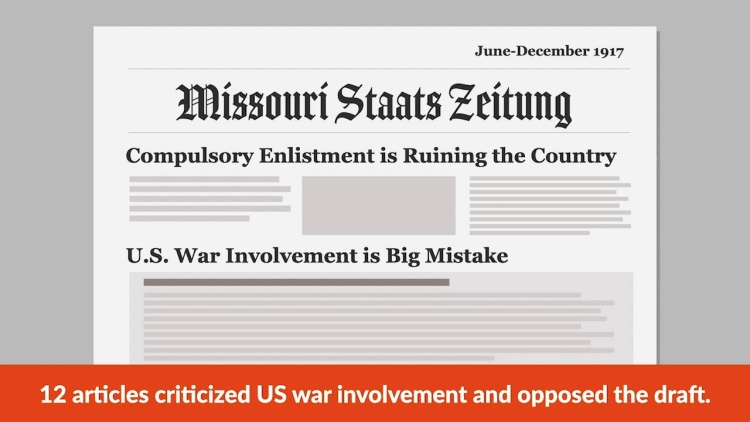Frohwerk v. United States
United States Supreme Court
249 U.S. 204 (1919)
- Written by Megan Petersen, JD
Facts
Two months after the United States’ entry into World War I, Congress enacted the Espionage Act of 1917 (the EA). The EA made it a crime for any person during time of war, to “willfully cause or attempt to cause insubordination, disloyalty, mutiny, or refusal of duty in the military or the naval forces of the United States.” In 1915, the Missouri Staats Zeiung, a newspaper published in Kansas City, Missouri, issued a series of 12 articles written by Jacob Frohwerk (defendant) denouncing the United States’ involvement in World War I. Frohwerk was indicted by the United States government in federal district court for 13 counts of violating the EA based on his involvement with the newspaper. At trial, Frohwerk was convicted of all but one count, and he was fined and imprisoned. Frohwerk challenged his conviction on the grounds that the EA violated his First Amendment rights to freedom of speech, and the United States Supreme Court granted certiorari.
Rule of Law
Issue
Holding and Reasoning (Holmes, J.)
What to do next…
Here's why 907,000 law students have relied on our case briefs:
- Written by law professors and practitioners, not other law students. 47,100 briefs, keyed to 996 casebooks. Top-notch customer support.
- The right amount of information, includes the facts, issues, rule of law, holding and reasoning, and any concurrences and dissents.
- Access in your classes, works on your mobile and tablet. Massive library of related video lessons and high quality multiple-choice questions.
- Easy to use, uniform format for every case brief. Written in plain English, not in legalese. Our briefs summarize and simplify; they don’t just repeat the court’s language.





